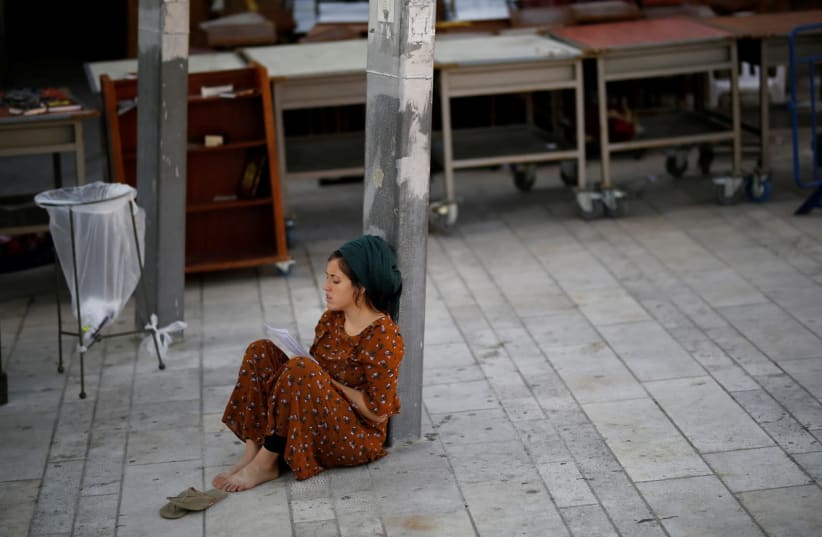"To our sorrow, the plague is intensifying and we need heavenly mercy," wrote Lau, explaining that he was bringing the religious rulings alongside Health Ministry regulations which "must be followed fully."
On Tisha B'av, which falls on Wednesday night, July 29, Jews mark the day that the two Temples in Jerusalem were destroyed and a number of other calamities occurred by fasting for 25 hours and abiding by other mourning practices, including sitting on the floor or low chairs, not wearing leather shoes and reciting the Book of Lamentations (Megillat Eicha), in which the prophet Jeremiah laments the destruction of Jerusalem and the subsequent exile.
Those who have tested positive for the coronavirus are forbidden from fasting, even if they feel well, Lau ruled. Anyone with symptoms, including a fever, weakness, cough or a lack of the sense of taste and smell should not fast as well.
Coronavirus patients who are recovering should not fast. One who has recovered entirely but still feels weak should not fast either.
Those who are in quarantine, but still feel well and do not have symptoms, should fast. If they feel weak, they should drink 37 ml of water every 9 minutes. If they still feel weak, they should eat as they would regularly.
One should wash their hands and use hand sanitizer, despite the rule usually on Tisha B'av that one should not wash their body (or at least more than the tips of their fingers). Lau stressed that "particular care must be taken in maintaining hygiene" and that any part of the body that needs to be sanitized should be sanitized as needed.
Those who are permitted to eat on Tisha B'Av should only eat as much as absolutely necessary and only eat at most one cooked dish at each meal.
Everyone, including those who are not fasting, should follow the other laws concerning mourning on Tisha B'Av. One should consult their rabbi with any questions concerning the laws and customs of the day.
Due to the necessity to limit time spent in public and the severe heat wave occurring this week, one should shorten the recital of the Kinot, a series of dirges recited after the reading of Eicha. Only the Kinot "Shabbat Suru Meni," "Zion Halo Tishali" and "A-li Zion" should be recited in a minyan, a congregation of ten people.
Kinot can be recited even without a minyan, so the rest of the Kinot can be recited at home.
"In prayer to the healer of all flesh that relief and a cure will be sent and the plague will be stopped, and that we will merit to see the Temple built readily in our times," wrote Lau.
Fast Start and End Times: (According to MyZmanim. There are varying customs)
Jerusalem
Start: 7:42 PM
End: 8:06 PM
Tel Aviv
Start: 7:40 PM
End: 8:09 PM
Haifa
Start: 7:40 PM
End: 8:10 PM
Eilat
Start: 7:34 PM
End: 8:03 PM
Beersheba
Start: 7:38 PM
End: 8:07 PM
New York
Start: 8:13 PM
End: 9:00 PM (According to Rabbi Moshe Feinstein, those who have trouble fasting may eat at 8:51 PM)
Los Angeles
Start: 7:55 PM
End: 8:37 PM (According to Rabbi Moshe Feinstein, those who have trouble fasting may eat at 8:29 PM)
